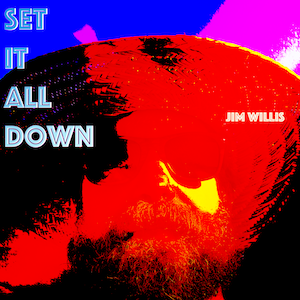Saturday, May 6, 2000
Padget Powell, Edisto
This is my third read of Powell’s Edisto and my first time really even coming close to understanding what is going on in the book. The difficulty, I see now in hindsight, is that the book covers so many different subject areas that it took me several readings to pick up on each level to see what was going on. The pages of Edisto address (and these are ranked in my order of perceived importance): the nature of learning and the development of self, race relations, class relations, marriage and parenting.
On the novel as a whole, I am reminded of both Hardy’s ability to paint a vivid locale as well as his ability to really define characters, even the minor/secondary ones.
With regard to the books addressing the nature of learning and the development of self:
(from page 84 where Simons reflects on his time with Taurus)That’s the thing I learned from him during those days: you can wait to know something like waiting for a dream to surface in the morning, which if you jump up and wonder hard you will never remember, but if you just lie there and listen to the suck-pump chop of the surf ad the peppering and the palm thrashing and feel the rising glare of the Atlantic heat, you can remember all the things of the night. But if you go around beating the world with questions like a reporter or federal oral history junior sociologist number two pencil electronic keyout asshole, all the answers will go back into mystery like fiddlers into pluff mud.
Taurus’ sit back and watch without judgement way of the world becomes something that Simons seeks to emulate and it serves as a good form of protection for when, at the close of the novel, surrounded by the pompous clods who populate the 19th hole. Instead of judging them, he turns their arrogance into a path of learning
(page 182-183)you never see these guys fold their arms and smoke and look for hours at a wall, knowing they don’t know the whole alphabet of success, have all the piece. They know the whole alphabet of worldly maneuver.And how, I have to find out, did they ever come to think they know that?
Another example of the book’s take on the development of self comes when Simons realizes the difference between himself, Taurus and the men who hang out at the Baby Grand: (Page 176)I had one of those white hearts that lub-dub this way: then—next ; and Taurus had one of these that go now—next; and the guys at the Grand when now—now. And you can’t change that with decisions to be cool. You can’t get to that now—now without a congenital blessing or disease, whichever applies.
Which takes us into a deeper look at the role that race relations play in the book. I don’t think that Powell is making any assertions about blacks in general here. I do think that the now—now lubdub that he refers to is more contingent upon where, when and how someone is raised than the color of their skin. But still, it raises some interesting issues. Especially when taken together with the sit back and watch without judgement perspective manifest in Taurus.
Meaning, Taurus sees the world without prejudice. It’s not that he is incapable of discerning the differences between individuals, but rather he waits for those differences to be raised by the situation instead of applying them without evidence. And in this sense, I think the book paints an incredible positive picture of what the world could be like if it were populated with Taurus’ instead of people who went into situations with their own preconceived notions of how other people will act.

